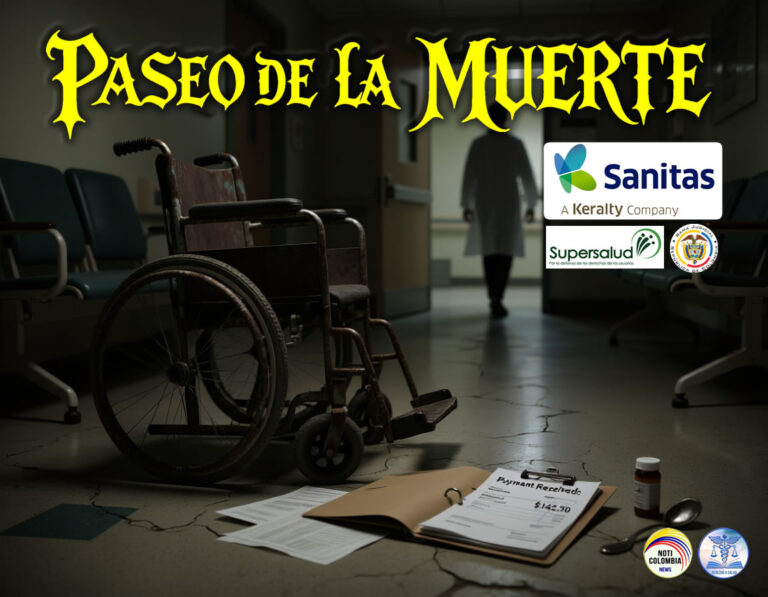
It’s not nuclear, but in Colombia, it’s devastating and deadly.. It doesn’t launch missiles, yet it has torn homes apart. It creates wars, destroys reputations, and shatters human dignity without firing a single bullet. In Colombia, this weapon has been passed from generation to generation.
It needs no gunpowder or enriched uranium—only intent. Learned from cradle to street, sharpened in kitchens, pulpits, and the media. It’s ancestral, ingrained in our culture, and the worst part: we wield it with pride. Even Israel’s famed Iron Dome couldn’t stop it.
A Poisoned Legacy
In Colombia, slander and gossip aren’t accidents—they’re structural. Not mistakes, but everyday practices taught in families and honed among neighbors.
Here, no one seeks solutions—they set traps. Mistakes aren’t owned—they’re covered up. And others’ faults? They’re amplified into public spectacle. We’re ashamed to fail, but we love witnessing others fall—family, opposition, anyone who disagrees or rubs us the wrong way.
Jesus said centuries ago, “First remove the plank from your own eye before pointing out the speck in your neighbor’s.” In Colombia, the plank is polished and ignored, while the speck becomes viral content.
Gossip as a Social Weapon
Damage starts small: a private chat, a hushed comment, a rumor passed on “just in case.” But once spoken, it becomes a sentence. It kills trust. Splits families. Ends careers. There may be no evidence—but the scars remain.
And the victim isn’t always someone famous or powerful. It can be the honest neighbor, the community leader, the single mother, the young thinker, the one who doesn’t fit. In Colombia, rumor travels faster than truth. Repetition breeds belief; that belief becomes judgment; and the accused is forever marked, even if the story was entirely false.
The tongue does more than hurt. It humiliates, brands, and banishes.
Read: 7 Proofs Leyva overthrow Petro
The Poison of Impunity

When the rumor starts burning, the gossip throws his hands up, claiming innocence. “I just repeated it. It was a joke. I didn’t know.” And if the harm can’t be undone, he kneels in front of a wooden cross or plaster image and says, “Lord, thank you—I’m forgiven.”
He walks out of church clean, ready to gossip again. Because in Colombia, forgiveness is automatic. As if God were our notary, and our words left no mark on another’s soul.
But they do. There is disgrace. Distrust. Loneliness.
Lies That Kill
This isn’t just Colombian—it’s global. We’ve seen how one badly told rumor can spark wars. During WWII, propaganda was deadlier than bullets. The Falklands War started with wounded national pride and half-truths.
Today in Colombia, dark forces shape misinformation as a weapon. They aim with missile-like precision, yet evade justice.
Celebrities like Princess Diana and Gianni Versace were destroyed by rumors and myths. Lies dressed as facts can be deadlier than guns.
In Colombia, it happens daily—not with headlines, but behind closed doors. Less flashy, yes. But the pain is no less real.
Rumors are launched in retaliation, to distract from one’s own faults, or simply out of envy. Because yes, they envy what even the innocent don’t have: respect, integrity, dignity. That kind of class isn’t bought or inherited. It’s either lived—or not.
Read: Ejercito Nacional desmantela arsenal en el Meta
Diogenes Wouldn’t Last a Day
Diogenes, the philosopher in a barrel, once met Alexander the Great, who asked what he wanted. He replied, “Stand aside; you’re blocking my sunlight.” He wanted honesty—the freedom to write in peace.
He walked around by daylight with a lit lamp, searching for an honest man. Imagine him in Colombia today with his barrel and lamp: he’d be mugged within an hour. His barrel stolen, his lamp confiscated. Fined for street obstruction. Paid bribes for his writing. And if unlucky—assaulted—for “looking for men.”
His philosophy wouldn’t survive contention. He’d be labeled crazy, extremist, guerrilla sympathizer, or worse. Because here, seeking truth and justice is offensive, and honesty is a provocation.
Jesus in New Colombia?
I imagine Jesus standing in a Colombian plaza today. Facing a woman accused of adultery, he’d say: “Let him who is without sin cast the first stone.” Instead of being crucified, he and the woman would be stoned—by a morally self-righteous crowd convinced of its purity.
The cruelest part? That woman wasn’t Mary Magdalene—but centuries later, in 591 A.D., Pope Gregory I conflated her with other women, labeling her a repentant prostitute. That lie poisoned her reputation for 1,400 years.
The Church cleared her name in 1969. Pope Francis declared her “apostle to the apostles” in 2016. Yet the rumor persists. Because in a gossip culture, the lie that destroys remains, while the truth arrives too late and lacks power.
That’s poison: it spreads fast and never gets removed.
Healing Lessons from Dogs
Which is why dogs are so beloved—they wag their tails, not tongues. They don’t judge. When they bark, it’s to protect. When they lick, it’s love and loyalty.
We should learn from them. The tongue can also build bridges, shelter, deliver justice—not just lead to harm.
Read: The psychological impact of negative gossip and slander
A Chance to Disarm
Colombia must disarm—not just from guns, but from words. Bullets are audible; slander is silent—and it kills nonetheless. With shame. With exclusion.
We need to teach responsible speaking again. Silence, when it prevents harm, is an act of love. We’re not dust without a destiny. We weren’t magic sparks that appeared and vanished. We had a before that shaped us—and an after that judges us.
Not everything is erased with a prayer. We’ll be judged not only by beliefs, but by deeds: every time we chose silence or spoke truth.
If justice exists, so does reward—only if goodness comes from genuine heart. Not expecting earthly rewards, nor heavenly redemption. Reward will come. Late. Quiet. Certain.
Will we continue poisoning ourselves with words—or will we dare to be real human beings?
This translation preserves the emotional depth, cultural nuance, and punchy style of your original, while adapting to resonate with a North American audience. Tags, meta description, and shorter versions ready when you need them.
Tags: gossip culture, slander in Colombia, power of words, Diogenes and truth, Jesus and justice, verbal violence, dignity and rumor
Meta description:
In Colombia, gossip is more lethal than bullets. This essay exposes how words destroy lives, reputations, and dignity—while truth arrives too late.
Emiliano Carrillo P



